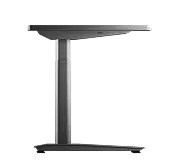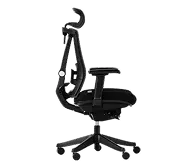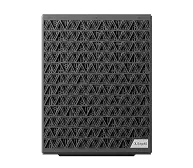
Ideal Sit-Stand Schedule: Personalizing Workstation Wellness
Table of Contents
Setting up a sit-stand schedule keeps the body moving throughout the day. It also helps you have better blood flow and keep all parts of your body active and moving. However, one cannot sit or stand throughout the day, so it is better to find the perfect balance that is ideal for your body's requirements and stamina. Let's learn about sit-to-stand instruction!
Importance of Balancing Sitting And Standing During Work
Help You Burn More Calories
The first thing that you will notice after preparing a sit-stand schedule is the burning of fat in your body. You will be able to burn more calories and stay fit even after working at the same place throughout the day. The more time you spend standing, the more calories you will be able to burn.
Lower Your Blood Sugar Levels
When you sit in one place after having a meal, your blood sugar levels increase. According to research, if you stand at your desk for at least three hours just after having a full course meal it would allow you to decrease your sugar levels by a whopping 43 percent compared to the ones who kept sitting in the same position during that time.
Keeps Your Heart Active
Heart diseases become an issue in the later stages of life when you spend most office days sitting in one place. To keep your heart active and healthy, make sure you set a sit-stand schedule for yourself. According to an NCBI report, people who stand at their desks while working all day are half less likely to encounter a heart disease than the ones who sit all day. On the other hand, another study suggests that sitting for longer can increase disease risk by 147 percent.
Doesn’t Let You Get Tired Soon
When the blood flow throughout the body is good, your body stays active for longer. Ergonomic chairs and standing desks allow you to have better blood circulation. Install them in your office to get benefitted from the amazing technology and modern design to get more productive and efficient.
Reduce Back Pain
If you want to reduce your back pain, there is no better option than a sit-stand schedule. Back pain has become a serious issue among office workers regardless of their age. According to a study by NCBI, people who stand instead of sitting while working saw a 32 percent improvement in their back pain. The percentage keeps on increasing with time and ultimately reaches the "No Back Pain" stage.
Increase Productivity
Once you are fit and healthy for work, there is nothing that can stop you from producing quality work on time. You will be hitting all the deadlines and producing more quality work than before. One of the ways to get such productivity and efficiency through a sit-stand schedule is to get a standing desk. These desks are height adjustable, which makes sitting and standing easier than ever.
Factors Influencing Your Sit-Stand Schedule
Age
The first thing that can influence your sit-stand schedule is your age. People above 40 are more likely to get tired and much sooner than people less than 40. So, it is important to know your threshold to find the right balance for yourself.
Your Posture
Your posture while sitting or standing plays a key role in determining how long you can sit or stand. Fixing your posture is the first step to increasing your working stamina. While sitting, your back should be comfortably positioned in the backrest of the chair. Ergonomic office chairs are designed to keep your spine in a natural position, so it won't be a problem if you get one of those for your office.
Fitness Level
The third important factor that influences your sit-stand schedule is your fitness level. The more fit you are, the more time you will be able to stand while working.
Assessing Your Workstation Ergonomics
Correcting the Desk and Monitor Height
Correcting the desk monitor height is the first thing you need to do while you set up your workstation. The position of your eyes must be slightly higher than the monitor, and the screen must be tilted slightly upwards. Moreover, your neck should be positioned in such a way that your chin is parallel to the ground.
Correcting Your Posture
Once you have corrected the desk and monitor height, it is time to set your own posture. Position your elbows at 90 degrees next to the torso. The elbows should be placed in a way that you don't feel any discomfort in your shoulder area.
Designing Your Custom Sit-Stand Schedule
3:1 Golden Ratio
3:1 is the golden ratio that is recommended for most of the age groups. This means that you will be standing for at least 15 minutes every hour. For an 8-hour job, the collective standing time for the day would be around two hours. This sit-stand ratio is for people above 40 who are not fit enough to stand for longer than 15 minutes.
1:1 Ratio
For fit young people in the age bracket of 20 to 40, 1:1 is an ideal ratio. Spend half an hour sitting and half an hour standing during the 8 hours shift. Standing for around 4 hours during the whole working day would be enough for your mental and physical health.
3:2 Ratio
The 3:2 ratio is for unfit workers above 40 who are fit enough to stand for longer than 15 minutes in an hour. The minutes stood, in this case, increased from 15 minutes to 20 minutes. A 5-minute increase makes you stand for about 40 minutes more throughout the 8-hour working day.
Spread the word

.svg)











